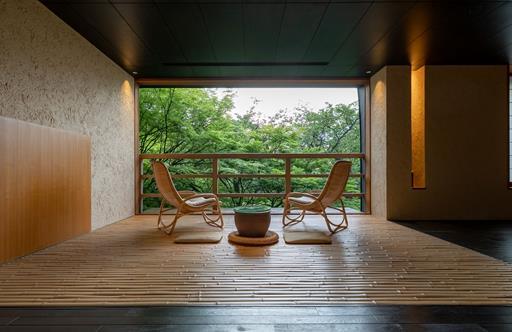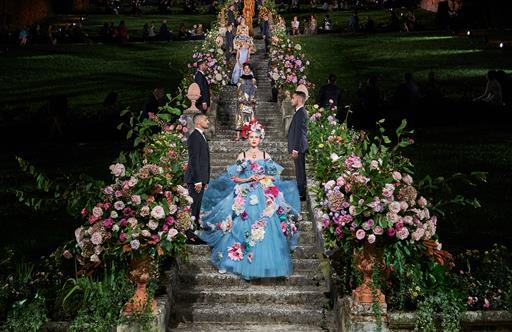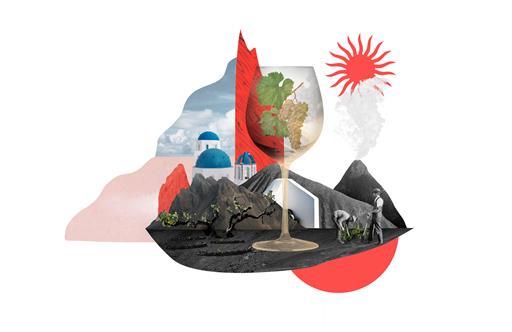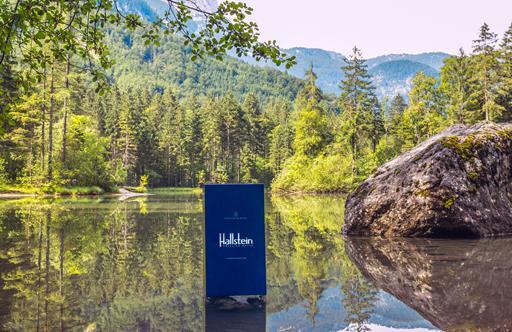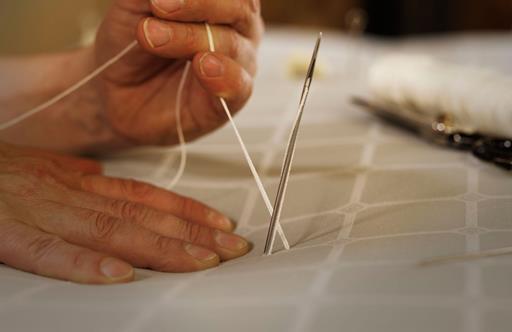The Future on a Plate
With 170 Michelin-star restaurants, more than any other city in the world, Tokyo has long since entered the collective consciousness of global connoisseurs. Now, leading eateries are redefining the Japanese hospitality scene with their bar-raising commitment to sustainability, while the city’s talented artisans preserve age-old traditions that connect the past to the present.

Thinking ahead comes naturally to Tokyoites. Perhaps it is not too surprising to learn, then, that the capital’s signatory hotels and restaurants have trained their eyes on the future, putting environmental awareness firmly in focus.
One such example is nôl. Having thoroughly impressed the culinary world by receiving a Michelin star soon after its opening in 2022, nôl commits to minimising food waste and resisting conventional (read: wasteful) haute cuisine practices. Take, for instance, the pre-dinner ‘aperitif’: a cup of soup made from cast-off ingredients like the roots, leaves and peels of the ingredients used in the menu of the day – flavourful and nutritious assets that most restaurants simply toss into the bin.

 nôl
nôl
Chef Ryohei Hayashi, meanwhile, questions the staple seafood ingredients traditionally used in Japanese cuisine at his Michelin-star adorned Tenoshima. A member of Chefs for the Blue, a team of top chefs and food journalists working towards ocean conservation, indicates his commitment by offering only the catch of the day – often deep-sea fish and highly local species only found in a small area off Japan's shores – rather than the specific type of fish diners otherwise expect in a traditional Japanese dish. The restaurant’s moniker underscores his ethos, named after one of the most beautiful islands of the Seto Inland Sea.

 Tenoshima
Tenoshima
There’s no need to travel far from the city lights to appreciate Japan’s natural charms. Set in Tachikawa, merely an hour's journey from central Tokyo, one can expect a true sanctuary in Auberge Tokito. Here, a quintessentially Japanese stay is coupled with a remarkable epicurean journey headed by Yoshinori Ishii, a former chef at London’s legendary Umu restaurant. The beating heart of this outstanding establishment is the way it takes ancient Japanese culinary practices and applies them to environmentally responsible ingredients, using, for instance, game meat from local wild boar and deer whose overpopulation is threatening the wider ecosystem. His unique approach can be experienced by hotel guests and non-guests alike.

 Auberge Tokito
Auberge Tokito
The sumptuous Aman Tokyo hotel proves it’s also possible for a sanctuary to exist among the hectic of central Tokyo. This Japanese-designed urban hideaway offers more than serenity in abundance, it has a strong sustainable spirit, too. Case in point: the majority of the rice consumption at the hotel – including at Musashi by Aman, one of the hotel’s dining venues led by master sushi chef Hiroyuki Musashi – originates from Aman’s own rice field. Master Chef Musashi is also devoted to rice-making, and the "Musashi by Aman Extra Dry" sake, crafted from rice harvested by Chef Musashi himself, pairs wonderfully with his traditional edomae-style culinary creations made according to techniques that date to the end of the Edo era in the mid-19th century.

 Aman Tokyo
Aman Tokyo
Challenging tradition is never an easy task, but when done by an institution with a long history (130 years, to be precise), it may well leave a lasting impact on the industry. The Imperial Hotel, Tokyo is attempting just that. Impressively, this property has turned every stone to maximise its eco-commitments without compromising the standards expected from an institution of its stature, from upcycling vegetable or fruit peels (also used in their sustainable salt) to inventing a crustless sandwich bread in an effort to reduce food loss.
The journey towards a more responsible culinary future is only just beginning, but – as these five leading establishments know – it can never be completed without taking that first step.
 W・E Bread Sandwich, The Imperial Hotel, Tokyo
W・E Bread Sandwich, The Imperial Hotel, Tokyo Sustainable Salt, The Imperial Hotel, Tokyo
Sustainable Salt, The Imperial Hotel, Tokyo
Experience Craftsmanship in Tokyo
Japan’s incredible, forward-looking culinary scene isn’t its only major asset. In between memorable meals at some of the most sustainability-focused restaurants in the country – and indeed the world – take a moment to experience the rich local heritage through traditional Japanese arts and crafts at historic institutions around the city.
Merely a ten-minute bike ride from the leading entertainment district Shinjuku resides Some no Sato Ochiai, a textile dyeing factory with a century-long history. Their designs and techniques, contrary to mainstream fast fashion, are the fruits of true artisan labour, which can be experienced in the form of workshop or factory tours.
Another long-standing art that may appeal to eco-conscious travellers is Kintsugi, in which damaged ceramics are repaired by applying lacquer and powdered gold, turning broken pottery into exquisite new works of art. Visitors can join a Kintsugi workshop to learn this skill that celebrates imperfections while embracing and accepting the natural progression of life.
Respect for the transient beauty of nature and life is also evident in the aesthetics of many Japanese arts and crafts, and can be enjoyed in the heart of Tokyo at traditional Japanese garden Hama-rikyu Gardens. Bejewelled by teahouses, serene ponds and seasonal flora, it’s the ideal oasis in which to experience and reflect upon Japan’s rich cultural heritage, spanning thousands of years and linking the past to today.
From innovative crustless sandwiches to environmentally conscious ingredient selection and successful efforts by long-standing hotels to usher Japan into a new age of sustainability, it’s clear that Tokyo should be top of mind for any traveller looking to journey ethically, ecologically and enjoyably.
 Some no Sato Ochiai
Some no Sato Ochiai
 Kintsugi workshop
Kintsugi workshop
 Hama-rikyu Gardens
Hama-rikyu Gardens





